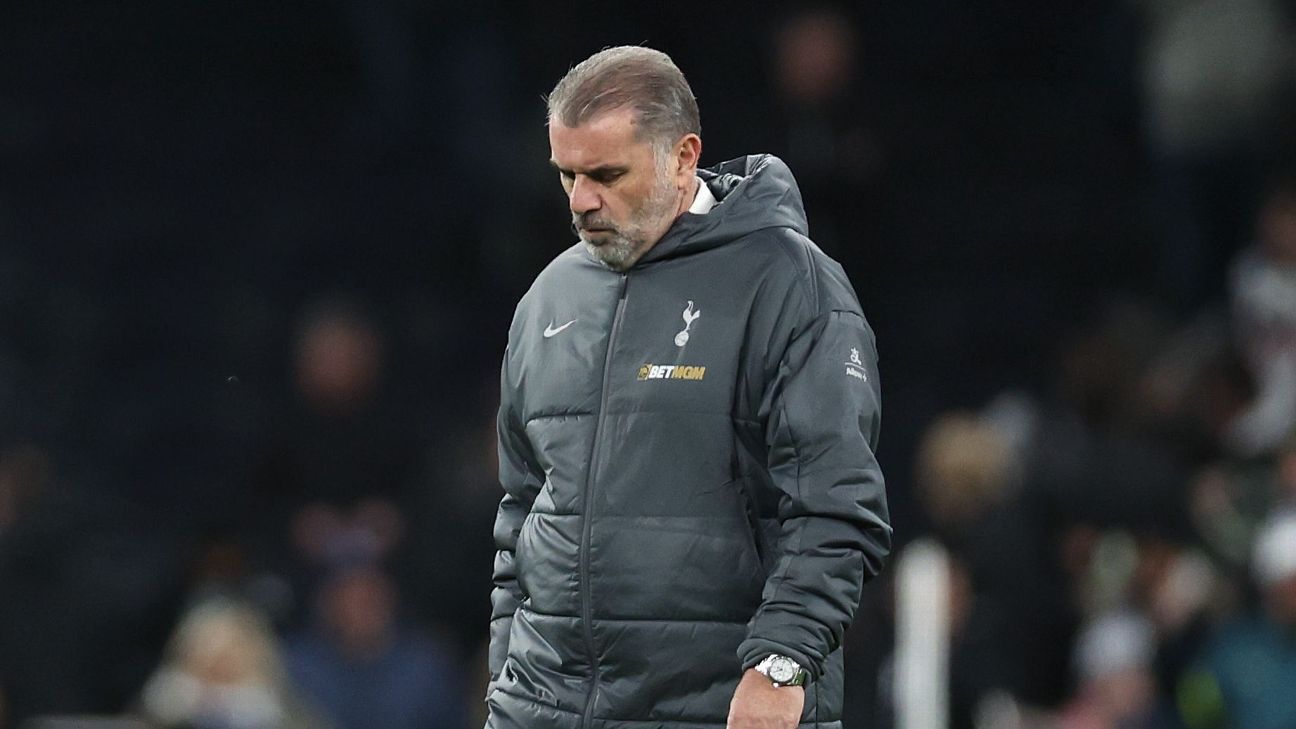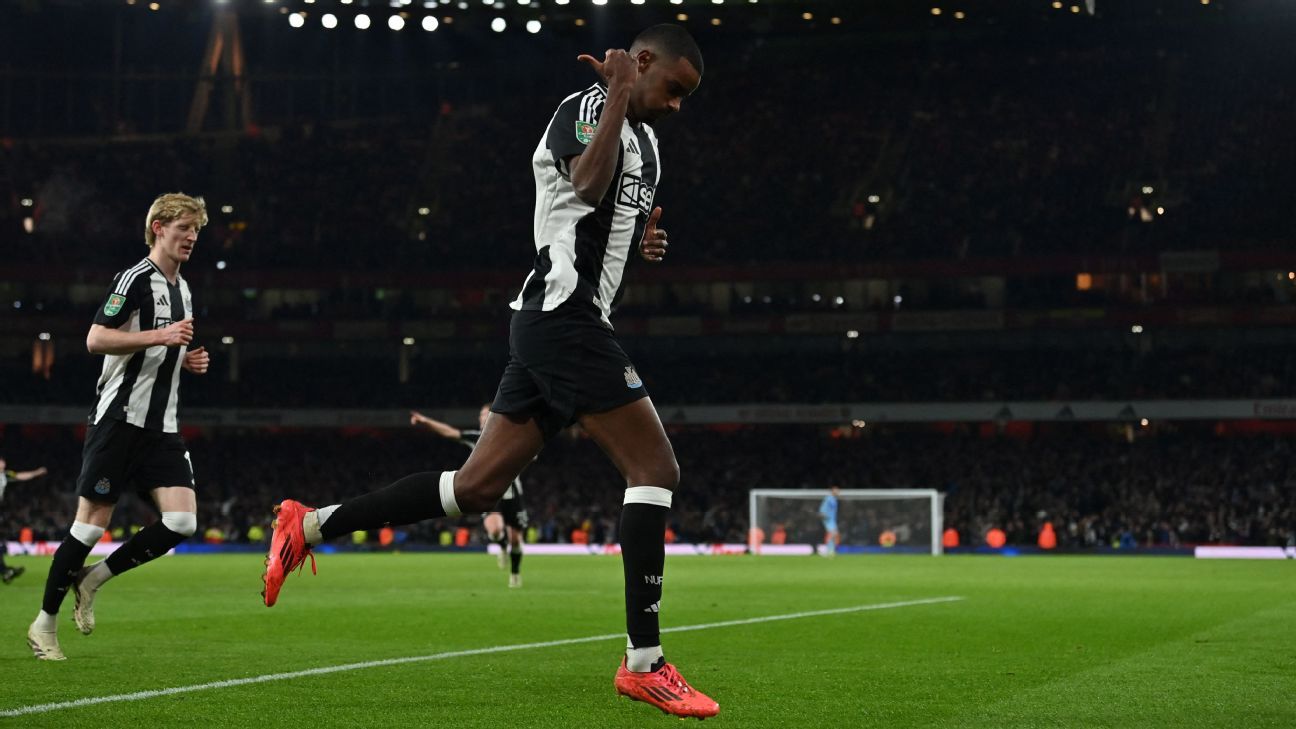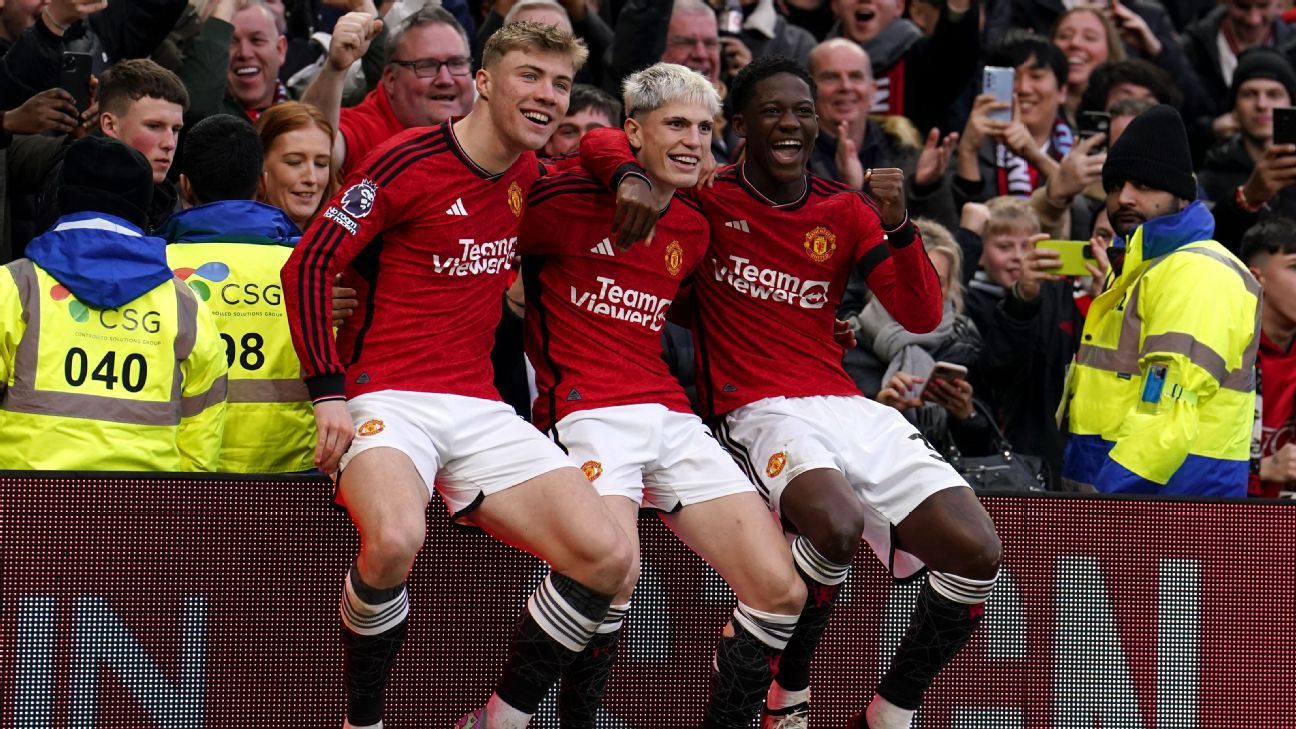Joey Lynch, Australia Correspondent
- Joey Lynch is a Melbourne-based sports journalist, AYA Cancer advocate, cynical centre-half and Zack Ryder mark. Primarily working on football, he has covered the Socceroos, Matildas, A-League, W-League, Y-League, the Australian grassroots and beyond.
Sep 9, 2024, 01:19 AM
JAKARTA -- It's late afternoon in the Indonesian capital, with the last pangs of the fierce heat of the day hanging in the air before the sun dips below the horizon. Yoga mats and foam rollers are laid out on one of the numerous fields surrounding the city's main stadium as the Socceroos commence their preparations for a first session in the country ahead of a World Cup qualifier against Indonesia on Tuesday.
Visible as they do so are several children's games taking place on the surrounding pitches, none of whom look to be older than 12. Graham Arnold's squad will soon make their way to their main training surface -- one where screens have been set up to dissuade any prying eyes -- and a swathe of young amateurs will once again reclaim their space on the grass.
It's not the usual kind of arrangement the Socceroos have before a game of this magnitude but, at the same time, there's something rather charming about the whole situation; one of Asia's best sides preparing for a "massive" World Cup qualifier alongside the next generation of a football-obsessed nation.
Looming over proceedings, perched in the background as the Australians are greeted a pack of fans sporting an eccentric mix of Western Sydney Wanderers, St Pauli and Parma kits, is the Gelora Bung Karno stadium. Silent now, the host venue for Tuesday's game will be filled with 80,000 football-obsessed Tim Garuda supporters -- creating one of the most hostile atmospheres in Asia.
"It's going to be a fantastic atmosphere -- the Indonesians can fill out a stadium and do it quite comfortably," Aaron Evans, who spent five years playing in Indonesia from 2017 to 2022, told ESPN. "It'll be hostile but it will be good.
"The fans and the clubs aren't well known on the world stage, but inside the country they love football."
It's one of those strange facets of Asian football that its three largest countries -- China, India, and Indonesia between them provide roughly 38% of the world's population -- have produced just a single FIFA World Cup appearance (China in 2002). And even with the expansion of the World Cup to 48 teams for the 2026 iteration, the odds are long that this will change in the immediate future; India have already been eliminated from contention and China were humbled 7-0 by Japan in their opening game of the third round of qualification last Thursday.
— ESPN Asia (@ESPNAsia) September 8, 2024Beyond its burning passion for the game, though, Indonesia, perhaps for the first time since independence, can count itself as a footballing nation truly on the rise. Earlier this year, it competed in its first Asian Cup in 16 years and reached the knockouts for the first time -- beaten 4-0 by Australia in the round of 16 -- and its under-23 side made the semifinal of its first Asian Championships in April, eliminating the Olyroos in the process.
Last Thursday, Indonesia secured one of the biggest results in the nation's history: taking the lead in Jeddah before holding out for a 1-1 draw with Saudi Arabia, a side ranked 77 places above them in the FIFA rankings.
"With them drawing against Saudi ... that's unheard of in Indonesian football," Robbie Gaspar, who spent nearly a decade playing in Indonesia and now heads Australian NGO the Indonesia Institute, told ESPN.
"Back in the day, they would have lost that, not been able to grind out a result like that. Indonesia, in my experience, hasn't travelled well. They're great at home but when they travel they struggle.
"There's some really good signs for Indonesian football."
Perhaps most remarkable, however, is that these good signs are coming after some disastrous lows of the not-too-distant past.
In 2011, with corruption and cronyism running rampant, FIFA appointed a normalisation committee to oversee the appointment of a new chairman after it barred Nurdin Halid -- who had previously been jailed amidst his time at the helm of the Indonesian Football Association (PSSI) -- from running for a third term. A year later Paraguayan footballer Diego Mendieta -- owed four month's pay by his club Persis Solo -- died from a treatable illness in a situation that FIFPro would later label a disgrace for Indonesian professional football.
In 2015, FIFA suspended the PSSI from football for government interference in the nation's domestic football leagues, ruling them out of qualification for the 2018 World Cup and the 2019 Asian Cup. After a year of banishment, a revolving door of permanent and caretaker coaches failed to bring stability -- at one stage during their suspension, names such as Jose Mourinho and Guus Hiddink had been fancifully floated as potential coaches. Tim Garuda ultimately lost seven of their eight games and conceded 27 goals during their disastrous 2022 World Cup qualification campaign.
"We're only really now starting to see Indonesian football start to recover," remarked Gaspar.
"With Indonesia, they love the game. It's their number one sport. They just want to get better at it ... they want to be successful and they are proud of showing what Indonesia is like and their identity through football."
In 2020, the federation turned to former South Korea boss Shin Tae-Yong, the mastermind of the Taeguk Warriors' elimination of Germany at the 2018 World Cup. He had a rough start as he rapidly looked to overhaul the age profile of the side and, even after qualification for the Asian Cup, there was some pressure on the Korean to keep his job.
That hot seat, though, has been well and truly doused by his team's performances across the past year.
Under Shin, there are two key trends in Tim Garuda. One is a deliberate strategy to get as many games as possible into a core group of young players he oversees at both a senior and under-23 level; Pratama Arhan, aged 22, already has 46 senior international caps. Witan Sulaeman (22) has 45, Rizky Ridho (22) -- who plays at the Gelora Bung Karno as skipper of Persija Jakarta -- has 40 and Marselino Ferdinan (19) has 27.
This is used in concert with a heavy use of the Indonesian diaspora around the world, with the likes of Maarten Paes (who saved a penalty against Saudi Arabia), Rafael Struick, Justin Hubner, Jay Idzes, Ivar Jenner, and Calvin Verdonk -- all Dutch-born players -- brought into the fold.
"These naturalised players have Indonesian blood. Therefore, they deserve Indonesian passports and the right to wear the Garuda emblem on their chests," Shin said earlier this year.
While they may not necessarily be key figures at their clubs, this meant that Tim Garuda was able to field a side in Jeddah that featured players from MLS, the Championship, Eredivisie, Serie A, and Belgian Pro League amongst their ranks. With Wolverhampton Wanderers defender Hubner possibly returning for match against the Socceroos, the Premier League could be added to that list on Tuesday.
"[Shin is] building a really good side," said Gaspar. "And then you bring in the boys that have been naturalised and they're going to do well. All they need is that big match experience. What's gone against them is that they haven't played together before. New players are coming in all the time.
"He's built this confidence in them, that they can get results away from home."
Of course, nothing in football is guaranteed. As is the case in many growing football nations, there remain challenges and pitfalls.
In 2018, the PSSI set up the Elite Pro Academy, a system of youth football leagues in which Indonesian Liga 1 sides field U14, U16, U18 and U20 team, but the youth pathways that will provide the next generation of players are still nascent as the infrastructure, coaching, and support systems around them are built up.
"They still need to focus a lot on youth development," said Evans. "They're starting to get it in place, but they've got a long way to go."
The Kanjuruhan Stadium disaster of 2022, where 135 people died and 583 people were injured also laid bare the challenges surrounding policing games, fan culture, and infrastructure that still exist.
"There's a lot of things that they've changed, but there's still things to work on so things like that don't happen again," added Evans.
On Tuesday, however, focus will be on Australia and laying down another marker for Indonesian football.
"We have a firm goal. I will keep motivating the team to reach it," Shin said after the Saudi draw. "Indonesia is not like before. Indonesia is a new dark horse in AFC.
"We will show many surprises in the coming years."
 (1).png)
 3 months ago
10
3 months ago
10


















